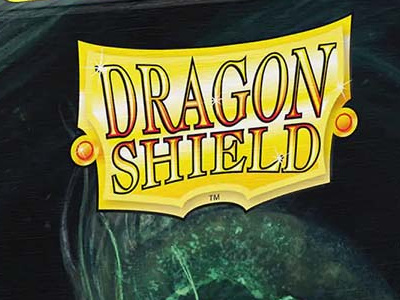We've now had some time to review Marvel's annual report for 2001, and it's a tale with better results than the last two disastrous years, reflecting the successes of the turnaround plan in all three of Marvel's business segments -- toys, publishing, and licensing.
The company lost around $10.8 million on sales of $181 million, compared with a combined $150 million loss the last two years on much higher sales. Marvel's small operating profit (see 'Marvel's Financials Continue To Improve') for the year compared to a $58 million operating loss last year. A couple of one-time non-operating events improved the results, including the forgiveness of debt that occurred when Marvel bought back bonds at a discount last year (see 'Publishing Continues To Improve in Marvel's Third Quarter,' and 'Marvel Gets Bank Financing') and the reversal of a $3.5 million accrual for administrative claims related to the bankruptcy. But those were not enough to balance the $45 million in interest expense and preferred dividend (paid in stock), producing the net loss.
Marvel's balance sheet was a little leaner, reflecting the downsizing of the company's toy business. The current ratio (of current assets to current liabilities) worsened slightly, from 1.6 to 1.4. Reserves for bad debt were up, despite reduced sales. Known stresses on Marvel's accounts receivable (although none were specified) are two customers, LPC and K-Mart, in Chapter 11 Bankruptcy (see 'More on LPC Chapter 11').
Marvel substantially altered the mix of its businesses in 2001, both as a result of declining toy sales and of increasing publishing and licensing sales. Toy sales were down 45%, publishing was up 10%, and licensing was up a robust 209% for the year!
Marvel Sales by Segment
| 1999 | 2000 | 2001 |
Licensing | 10% | 8% | 22% |
Publishing | 13% | 20% | 27% |
Toys | 77% | 72% | 51% |
Publishing
Direct market sales became more important as a share of Marvel's publishing business in 2002, taking share of revenues away from advertising. But the direct market was a nearly identical percentage of single copy sales, indicating that the direct and returnable markets both grew at about the same rate.
Revenue Type as % of Total Publishing
| 1998 | 1999 | 2000 | 2001 |
Direct Market | 81% | 80% | 77% | 80% |
Returnable Sales | 10% | 9% | 8% | 8% |
Advertising | 6% | 9% | 13% | 9% |
Subscriptions | 3% | 2% | 2% | 3% |
Marvel indicated that book sales were improving as trade collections picked up in response to sell-out of the material as periodicals due to printing to order. As cost-saving initiatives, Marvel noted its consolidation of book distribution with Diamond (see 'Diamond Moves into Bookstore Distribution'), the reduction of 'expensive, exclusive agreements with writers and artists,' and the elimination of hand coloring of comics.
Toys
About 75% of Marvel's toy sales in 2001 were generated from products not based on Marvel characters. Since Marvel began licensing the production of toys based on Marvel characters (except those based on movies) to Toy Biz Worldwide during 2001 (see 'Marvel Cash Flow Positive in Q2'), that number may be skewed somewhat, but the Lord of the Rings figures brought that percentage up as well. The LOTR figures needed to do well, since Marvel disclosed in its report that it had paid $5 million in a licensing advance for the deal and guaranteed another $10 million (presumable for the second and third films) with a standby letter of credit.
Toy sales became less concentrated in 2001, with the percentage of toy sales accounted for by the Big Five dropping to 45% from 60% in 2000 and 70% in 1999.
Licensing
Licensing revenues increased by around $21 million from 2000, reflecting lots of new deals. In addition to consumer products licenses, Marvel also recognized revenues from first and second series of the new TV series X Men Evolution, as well as revenues from its new deal with Toy Biz Worldwide. Interestingly, while Marvel recognizes revenue from licenses immediately in most cases, in the case of the Toy Biz Worldwide license the revenue is being recognized over the life of the license.
Jemas Compensation Down
Marvel COO Bill Jemas (who is directly responsible for publishing) didn't get a cash bonus in 2001 so he had to get by on his $325,000 salary; he was paid bonus and salary of around $500,000 in 2000. Luckily his options will help cushion the blow (although that grant was also below the one in 2000). His 145,000 new options, priced at $2.50 to $3.27, would net him over $650,000 if exercised today (although some of those options cannot be exercised until future years).
Diamond Select Owed Money by Marvel
Last, in the related parties disclosures, Isaac Perlmutter, Marvel's largest stockholder, guaranteed a debt from Marvel to Diamond Select of up to $2.5 million during 2001. The debt is one '...that [Marvel] owes Diamond Select... under a distributor agreement dated August 24, 2001 between the Company (acting through Toy Biz, Inc.) and Diamond ...[Select] and that Marvel Characters owes Diamond ...[Select] under a License agreement dated April 24, 2001.' The guarantee specifies that, 'Mr. Perlmutter is obligated to pay these amounts owed...in the event that these amounts do not offset the amounts Diamond owes ...[Marvel] pursuant to an Agency Agreement dated April 24, 2001 between ...[Marvel] and Diamond.'
The nature of the money Marvel owes Diamond is intriguing, to say the least. It appears that Diamond made a large cash payment to Marvel in conjunction with its Diamond Select license, with the right to offset it against distribution bills at a later date. The Perlmutter guarantee appears to cover Diamond in the event that there were no distributor bills against which to offset the amount owed Diamond Select (which would occur if Marvel were no longer publishing books and comics, as in a bankruptcy). Diamond may have had to buttress Marvel's cash position in order to close the Diamond Select Marvel license. Given that there were times in 2001 when Marvel was low on cash and had no bank credit, it's not surprising that it would try to build some cash flow into a licensing deal with a company trying to displace a long-time licensee. And on the other side, it's a credit to Diamond's closers (COO Chuck Parker and CFO Larry Swanson) that they were able to provide for the direst of outcomes with a guarantee from a well-heeled third party.







